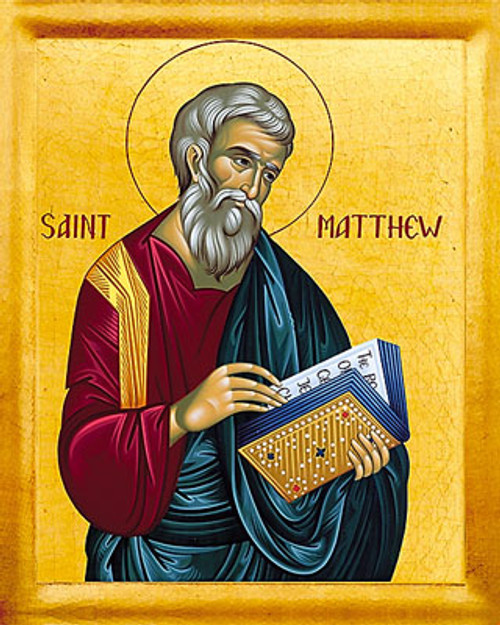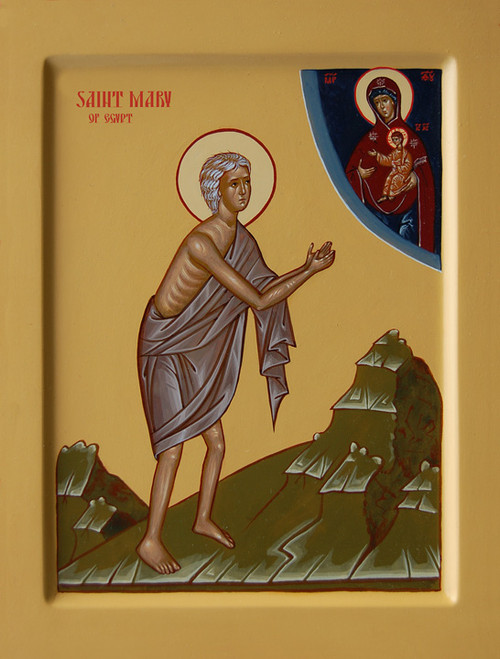Commemorated on November 16
It is believed that after the day of Pentecost, the Apostle and Evangelist Matthew preached the Gospel first in Palestine, and then in Syria, Media, Persia, Parthia and finally, Ethiopia. Tradition holds that the Lord appeared to Saint Matthew, giving him a wooden rod and instructing him to plant it in a particular place in Ethiopia. Upon his arrival at the place in Ethiopia described by the Lord, he met a Bishop named Platon. The rod was planted, as the Lord had instructed, and almost immediately it sprouted leaves and grew into a beautiful tree, the fruit of which was delicious. A spring also welled up nearby, the water of which could heal the sick. Many Ethiopians were won over to Christ, although the local sovereign Prince, Fulvianus, a dedicated pagan, was violently opposed to this and, by his order, Saint Matthew was arrested and burned at the stake. In time, however, Fulvianus came to doubt his action and agonized over his horrific act. His conscience beckoned him towards Christ. Ultimately, he embraced the Christian faith and was baptized, taking the name "Matthew." When the elderly Bishop Platon reposed, Saint Fulvianus-Matthew was consecrated to the episcopacy and succeeded him. He spent his remaining years preaching the Gospel and winning his people to the Church







